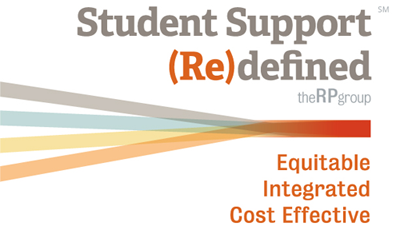Student Support (Re)defined

Student Support (Re)defined (2011-2014) aimed to understand — from the student perspective — how community colleges can feasibly deliver support both inside and outside the classroom to improve success for all students.
The project sparked a movement across our California Community College system, with institutions using the findings to facilitate dialog about student success; engage in strategic and equity planning, and pursue actions designed to meaningfully strengthen student attainment.
Is your college interested in learning more about the work of Student Support (Re)defined and/or using the study’s findings to support student success initiatives on your campus?
All options are listed with a time range and can be customized to meet the needs of the college and audience. In addition, the RP Group is open to exploring new ideas for how to present the information in ways that help ensure it is applicable and useful.
For questions or more information, please download this flier or contact research@rpgroup.org.